The content and opinions provided on this site have not been provided or commissioned by any issuer of the financial products and/or services appearing on this site. The content and opinions have not been reviewed, approved or otherwise endorsed by an issuer. Offers may be subject to change without notice. For more information, please read our full disclaimer.
Wondering if you can get a credit card with fair credit or no credit? Good news—there are credit cards options and exclusive offers available for a variety of circumstances. While fair credit is better than bad credit, you might find it challenging to snag the cards with top rewards. Start building your credit with the card choices we highlight at the end of this article. Over time, this effort will help you qualify for even better credit card deals down the road.
What is Credit
In simple terms, credit is having the ability to access funds or resources with the knowledge you’ll eventually have to pay back the money later. Credit is expressed in a general range of excellent to bad credit, and the numerical score can be plus or minus 50 points depending on the credit reporting resource. Depending on whether you’re using your credit for loans or a new line of credit, the preferred score ranges will vary. There are numerous elements that play into your credit score being considered excellent or bad.
The most negative impacts on your credit score include poor payment history, the length of your credit history, overusing your available credit amounts, applying for too many credit accounts, and defaulting on current accounts. Positive impacts to your credit score include paying your bills on time, paying off existing debts or loans, limiting credit requests, and making any outstanding payments. It’s important to evaluate all these factors when looking to apply for a new credit card, so you can make your best choice.
Credit is generally categorized based off the FICO® score ratings as follows:
Excellent: A score of 800 – 850
You will be qualified for the best credit card offers, cash back rewards, most loans, and receive low interest rates.
Good: A score of 750 – 800
You’ll have the benefit of lower interest rates, exclusive rewards, and the ability to receive loans more easily.
Fair: A score of 680 – 740
You’ll most likely be able to apply for most conventional loans, but you may run into mediocre interest rates.
Poor: A score of 590 – 680
Interest rates may be high but you’ll most likely be able to apply for some credit or certain types of loans.
Bad: A score of 300 – 580
It will be difficult to get approved for most loans and quality lines of credit.
“FICO® Score”, “Credit Score” and Credit Reporting Companies
Your credit score is a numerical figure that expresses your ability to borrow responsibly. FICO® (which stands for Fair Isaac Corporation) helped develop the method for how scores are calculated and is a prominent standard for credit scores in the industry. Credit rating companies (such as Experian®, Transunion® and Equifax®) use your score to generate a credit report that lenders will use to determine if you will qualify to borrow money from them.
FICO® scores are used by most top lenders and can be one of the most accurate models to determine your current credit standing.
What Does it Mean to Have Fair or Average Credit
If you’re a current student or have little to no established credit history, your credit score may fall into the fair/average category. Those in the process of rebuilding their credit history may also fall in the fair/average credit score category.
Fair to average credit is a 650-699 FICO® score based off:
- Your payment history: Not paying bills on time can take a hard hit at your credit score. Staying timely and consistent with recurring payments will have a positive impact on your credit score over time.
- Your credit history: If you’re new to credit, you won’t have the same score as someone with a long credit history. When it comes to credit, the longer the history the better. A strong credit history is needed when qualifying for the best loans, rates, credit cards, and terms. If becoming an authorized user is an option for you, it can be a great option to kick-start building your credit history.
- Your credit mix: Your credit mix is the different types of credit accounts you currently have. This can include student loans, car loans, credit cards, and more. Be sure to keep tabs on your current credit mix. Staying diligent with paying off your accounts on time will go a long way for building your credit score.
- Your credit application activity: If you apply to too many lines of credit at once, it can negatively impact your credit score. If you’re a student just beginning to build credit, it’s important to take your time when applying for any kind of credit account. If you apply for multiple types of credit within a span of 3-6 months, you may be seen as a liability to lenders. When it comes to building credit, slow and steady wins the race.
An average score usually means you may not get the best interest rates, loans, and you’ll have limited credit card options. The good news is, there’s a variety of credit cards available for both students and those at the beginning of their credit journey. Having great credit can open doors to lower interest rates, higher credit lines, home loans, and cash back rewards. When it comes to being a student, having a high rated credit score can help you get into your first apartment, buy your first car, or help you apply for your first rewards or cash back credit offer. Working hard towards a high FICO score will financially benefit your future in more ways than one.
Build credit. Build dreams. All Credit Scores are Welcome! It's time to take control of your credit score. Don't let your credit be an obstacle to the possibility of a great personal loan offer. See website for details.
- Reports to all 3 credit bureaus
- Offers 4 credit builder plans
- No hard credit inquiry
Credit Cards for Consumers with Fair or Average Credit
Discover it® Student Chrome
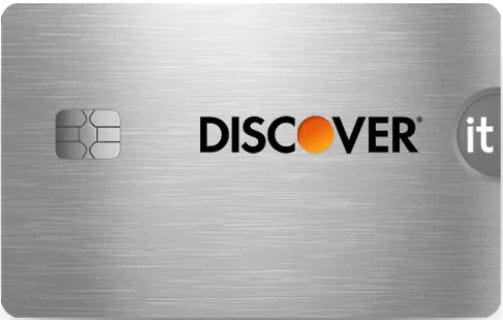
- Cash Back
- 2%
- Annual Fee
- $0
The Discover IT Student Chrome credit card is a great choice for any student looking for the chance to build their credit history while also earning rewards and cash back at gas stations and restaurants. See website for details.
- Variable APR: 17.74-26.74%
- Unlimited cash back match
- No credit score needed to apply
OpenSky® Secured Visa® Credit Card
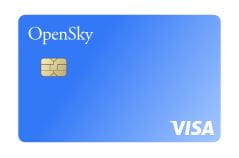
- Variable APR
- 24.64%
- Annual Fee
- $35
Low minimum deposit required to open a secured account, good for building credit. See website for additional details.
- Flexible payment options
- Good for building credit
- Reports to all 3 major credit bureaus
QuicksilverOne from Capital One®
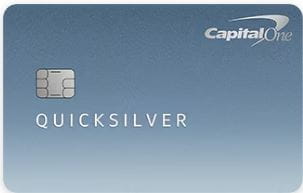
- Variable APR
- 29.74%
- Annual Fee
- $0
The Capital One Quicksilver Secured Rewards Credit Card is for cardholders who prioritize cash back rewards. With the Capital One Quicksilver Secured Rewards Credit Card, 1.5% cash back is earned on each and every purchase. See website for details.
- Tap to pay
- 1.5% cash back on eligible everyday purchases
- Proactive account alerts
Upgrade Cash Rewards Card
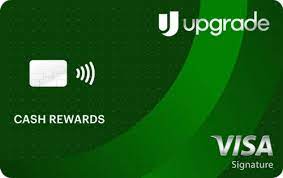
- Cash Back
- 1.5%
- Annual Fee
- $0
This is a great card for anyone with average credit that is looking for a card with great rewards. See website for details.
- Variable APR: 14.99-29.99%
- Unlimited 1.5% Cashback Rewards
- Credit lines from $500 to $25,000
Chime Credit Builder Visa® Credit Card
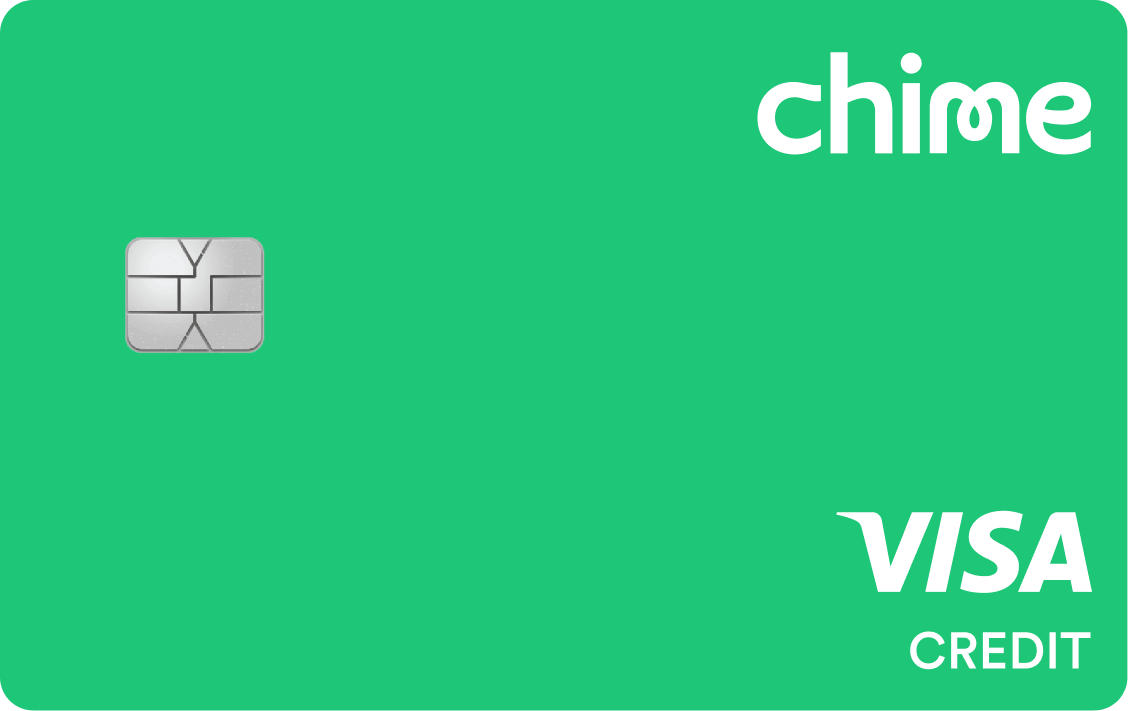
- Variable APR
- 0%
- Annual Fee
- $0
This card is great for students or people with little to no credit or those who have a poor credit rating. Must have a Chime Checking Account and qualifying direct deposits of $200 or more.
- No credit check to apply
- Great for Building Credit
- Reports to all 3 credit bureaus
5 Ways to Improve Your Credit Score:
If you have fair or average credit and are looking to improve your credit score, then there are steps you can take. Improving your credit score often results in amazing benefits like lower on average interest rates, annual fees and the ability to apply for cards with better rewards. 5 ways to improve your credit score if you have fair to average credit include:
- Pay Your Bills In Full And On Time
- Try To Keep Your Credit Utilization Under 30 Percent (10% Is Even Better)
- Look For Pre-Qualified Offers On Credit Cards, Loans And Other Types Of Credit
- Check Your Credit Report And Be Prepared To Correct Errors
- Be Careful About Canceling Older Credit Accounts








